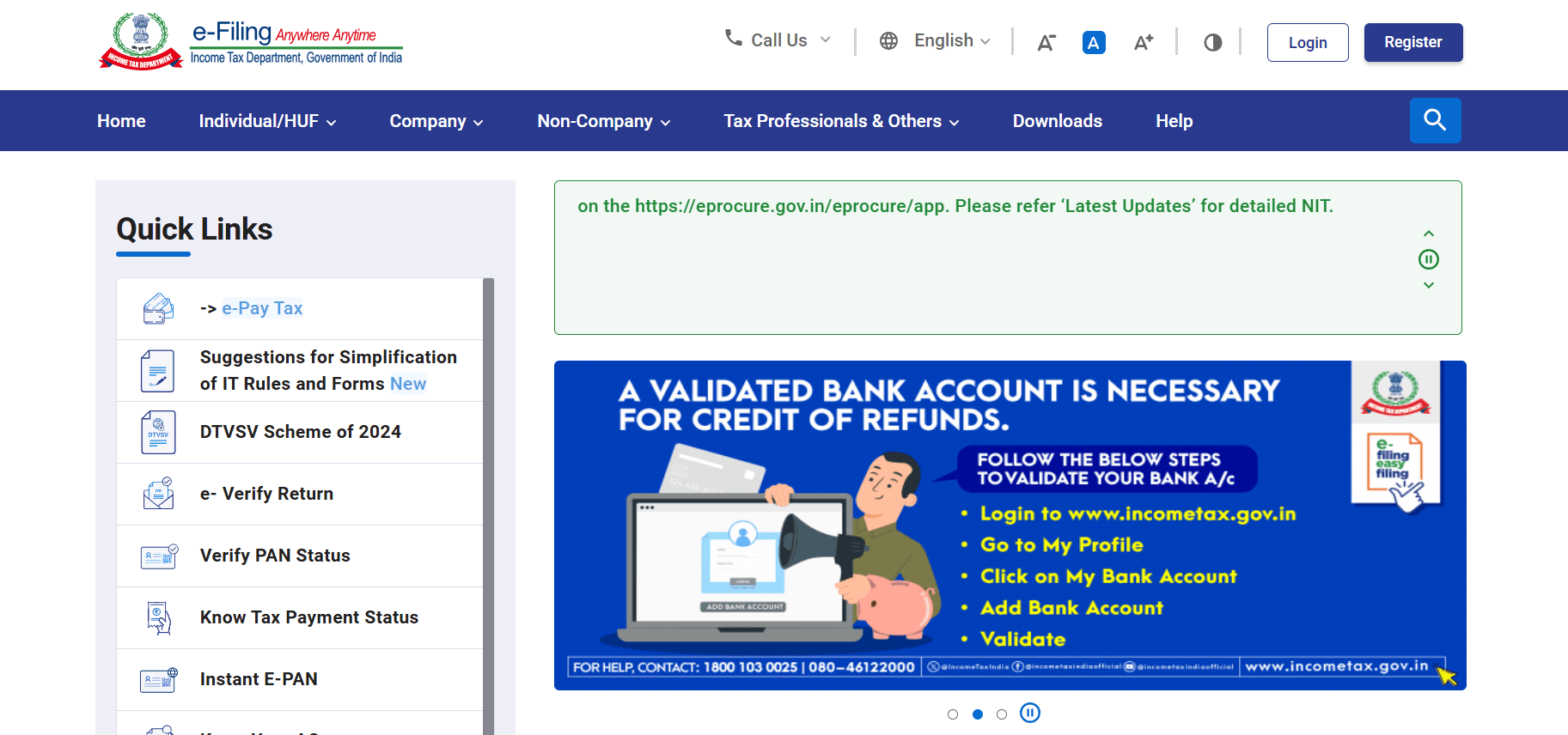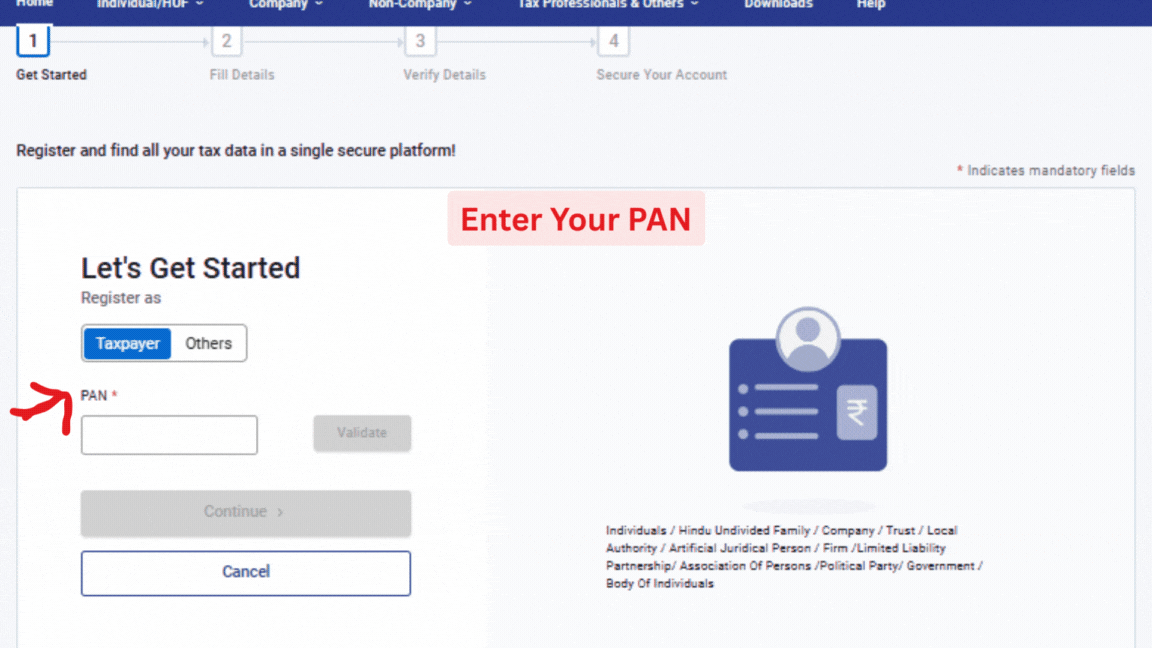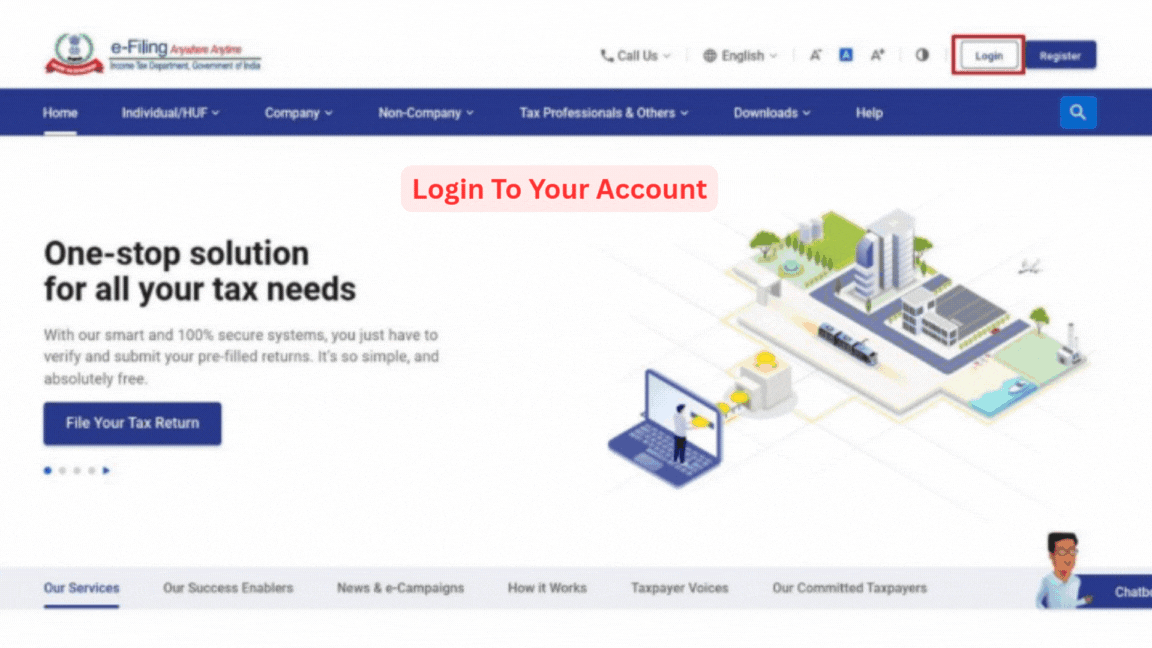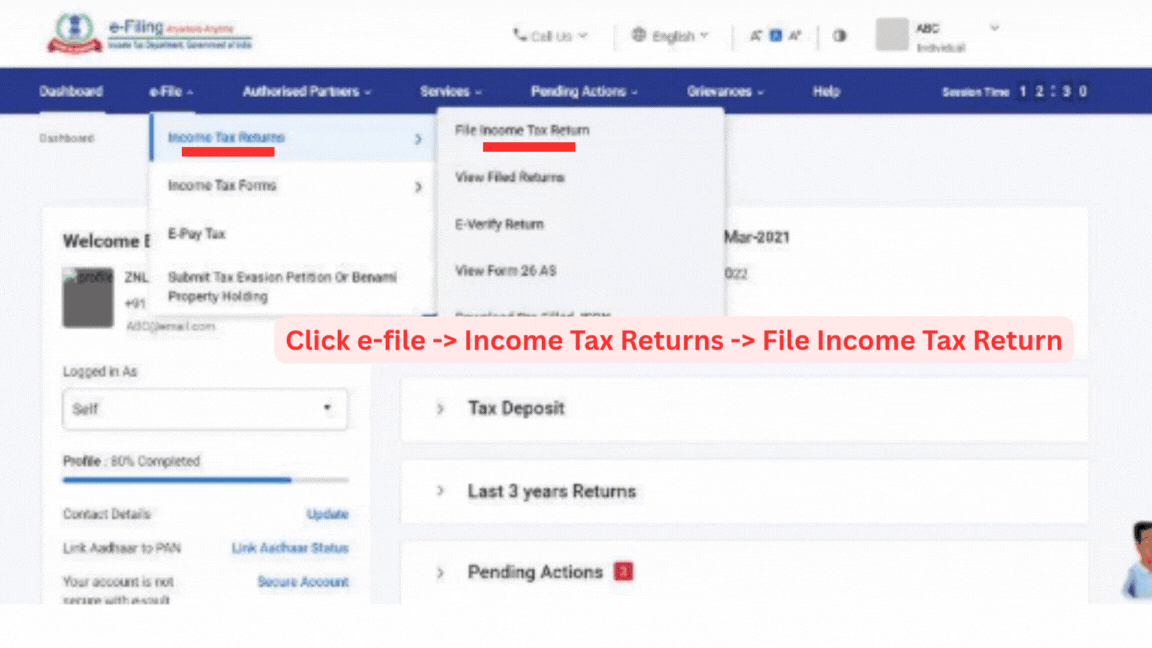With the introduction of the income tax e-portal, the Income Tax Department of India has made tax filing more transparent, secure, and user-friendly. If you're a first-time filer or someone who used the older portal, this guide will help you understand how to smoothly transition to the new income tax portal, use its features, and complete your filing with confidence.
Why a New ITR Portal?
The older system, while functional, had limitations. Users often faced delays, login issues, and confusion over form types. The revamped income tax e-portal aims to address these concerns. Key objectives include:
Faster processing of returns
Quick and seamless refund crediting
A clean, taxpayer-friendly interface
Real-time dashboards and integrated services
It is part of the Central Board of Direct Taxes (CBDT) initiative to modernise Indian tax systems.
Key Features of the New Income Tax Portal
1. Pre-filled ITR Forms
The income tax e portal auto-fills your income, interest, and tax details from sources like Form 26AS, TIS, and AIS. This reduces manual work and errors.
2. Faster Refunds
If your bank account is pre-validated and return verified, refunds are often credited within a few days.
3. Unified Dashboard
Track all your filings, notices, pending actions, and communications in one place.
4. Multiple Payment Options
You can pay tax using UPI, net banking, debit/credit cards, and even NEFT/RTGS through your bank.
5. 24x7 Support
Live chat, video tutorials, and a detailed FAQ section are available to help.
6. Mobile Compatibility
The portal is responsive and optimised for tablets and smartphones.
These features make income tax filing online not just convenient, but also more secure and error-free.
Step-by-Step Guide to Using the New Income Tax Portal
Let’s walk through each step in detail so you’re well prepared.
Step 1: Registration / Login

Visit www.incometax.gov.in & click ‘Register’ (top right)
Enter your PAN as your User ID
Choose your user type (Individual, HUF, or other)
Fill in basic details like your name, DOB, mobile number, and email
Verify with the OTP sent to your mobile/email
Set a secure password
Existing Users:
Click on ‘Login’
Enter your PAN and password
Complete the captcha and OTP if prompted
Tip: Make sure your PAN is linked to Aadhaar to avoid login or validation issues.

Step 2: Update Profile Information
Once logged in, navigate to My Profile:
Check your mobile number and email – update if needed
Pre-validate your bank account for receiving refunds
Add Aadhaar and digital signature (if applicable)
Fill in your communication address, occupation, and marital status

Step 3: Start Filing
Go to e-File > Income Tax Returns > File Income Tax Return
Choose:
Assessment Year: For income earned in FY 2023-24, select AY 2024-25
Online or Offline filing: First-time filers should opt for the online mode
Status: Individual / HUF / Firm
Step 4: Choose the Correct ITR Form
The form depends on your income type. There are seven forms available so select the correct ITR form option.
Beginner Note: If you're salaried and don’t have capital gains, ITR-1 is generally applicable.
Step 5: Review Pre-Filled Data and Enter Additional Information
The portal may already include:
Salary details from Form 16
Interest income from banks
TDS deducted
Details from AIS (Annual Information Statement)
Check everything:
Add deductions under 80C, 80D, etc.
Input any other income (freelancing, rental, etc.)
Cross-check bank account details
Step 6: Preview and Submit Return
Before submission:
Click "Preview Return"
Ensure all figures are correct
Fix any validation errors shown
Click Submit to proceed.
Step 7: E-Verify Your Return
This is mandatory. You have these options:
Aadhaar OTP: Quickest way if your Aadhaar is linked to your mobile
Net Banking: Log into your bank, select e-Verify
Bank Account EVC: A code is sent to your registered mobile
Digital Signature Certificate (DSC): Mandatory for audit cases
Once verified, you will see an Acknowledgement (ITR-V). Download and save it.

Common Issues and How to Fix Them
1. Login Problems
Clear browser cache and cookies
Use Chrome or Firefox
Try incognito/private window
2. Return Not Submitting
Don’t file during peak hours (like late evenings near deadline)
Use a stable internet connection
3. E-Verification Fails
Aadhaar not linked to mobile? Use Net Banking
Still stuck? Use the offline method (send signed ITR-V to CPC Bengaluru) or learn how to handle an income tax notice if issues persist
Tips for a Smooth Filing
Link PAN and Aadhaar before filing
Pre-validate your bank account and check the IFSC code
Keep your Form 16, AIS, and TIS ready
Review every field, especially deductions and exemptions
Save your progress every 10 minutes to avoid data loss
File early to avoid last-minute stress
Conclusion
The new income tax portal is a welcome shift towards simplifying taxation in India. With user-centric features, faster refunds, and robust support, filing taxes is now less stressful. Even if you're a beginner, following the step-by-step guide will help you feel confident.
Disclaimer: This information provided is intended for general informational purposes only. It is not a substitute for professional advice or guidance. For personalised recommendations or specific concerns, please consult a certified professional.




